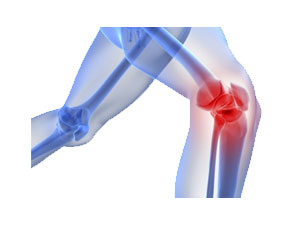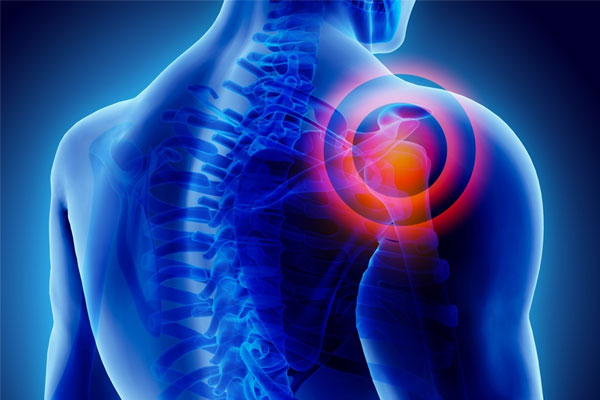In a quick and simple outpatient procedure, PRP injections can help you:
- Build strength
- Improve balance and coordination
- Increase flexibility and range of motion
- Recover mobility
- Reduce pain and swelling
- Regenerate cartilage
- Speed post-surgical recovery
How PRP Works
When blood vessels are damaged, they send a signal to the body. Platelets - the smallest cells in the blood - respond and stop bleeding by causing blood clots. Platelets also contain specialized chemicals called growth factors.
When these growth factors interact with the local cells, they send signals that initiate a variety of events such as cell division and migration. This gives platelets a key role in the process of wound and soft tissue healing.
PRP injections are derived from the growth factors found in platelets. By delivering an optimal concentration of growth factors to an area of injury, PRP can stimulate healing.
Conditions Treated by the Regenerative Sports Medicine Program
PRP can help promote healing in patients with a variety of musculoskeletal conditions. With the Regenerative Sports Medicine and Orthobiologics Program, we may suggest PRP injections for people with sport or activity related injuries, arthritis, or during or after surgery on a major joint.
Our team will take the time to speak with you about your goals for treatment and conduct a thorough exam to determine if you are a good candidate for PRP. If approved, we will then develop a personalized treatment plan for you.
Platelet-Rich Plasma for Sports Medicine Injuries
PRP can help promote healing in those with a sports or activity-related injury. In these patients, PRP can reduce recovery times for non-surgical injuries such as tennis elbow or tendonitis of the knee. PRP injection can also benefit people with tendon or soft tissue injuries who would like to avoid surgery. When surgery is necessary, PRP given at the time of the procedure can help reduce recovery times and promote faster healing.
PRP injection is used most often with sports medicine injuries related to the:
- Achilles Tendon
- Anterior cruciate ligament
- Hamstring
- Lateral/medial epicondyle (common extensor and flexor tendon)
- Patellar tendon
- Cartilage
Platelet-Rich Plasma for Joint Pain
PRP can be beneficial for people with arthritis or pain in major joints. In these patients, PRP injections can help alleviate discomfort and improve function. People who aren’t yet ready for a hip, knee, or shoulder replacement are often good candidates for PRP injection.
PRP injection is used most often with the following joints:
- Carpometacarpal (thumb)
- Glenohumeral (shoulder)
- Hip
- Knee
The Treatment Process
PRP injections are prepared using your own blood. After it’s drawn, your blood is placed in a specialized system which uses light sensors to separate platelets from the other components of your blood, such as red blood cells.
Next, these highly concentrated platelets - or PRP - are injected into the site of your pain or injury. There, they release growth factors that help accelerate the healing-regenerative process. Your doctor will anesthetize the treatment site before the procedure to reduce initial discomfort.
Optimized by Research
Because PRP is on the cutting edge of orthobiologic treatments, there is a significant amount of variation in the protocols used by providers nationwide.
In response, specialists in the Regenerative Sports Medicine and Orthobiologics Program have spent the past several years studying other PRP programs and gathering data from around to world to identify the most effective approach. The result is a unique PRP formulation, which is personalized for each individual patient.
The formulation of PRP that a patient receives is among the most important factors for positive outcomes.
Benefits of PRP
- PRP injections can offer consistent pain relief and functional improvement for one year or longer.
- Because PRP is derived from your own blood, there is a low chance of having an allergic reaction or abnormal immune response.
- PRP injections have minimal risk of local infection (<1%). Serious side effects or complications are extremely rare. Minor pain at the site of the injection is common in the short term but is easily managed with pain relievers.
- PRP injections are beneficial for a broad range of people including athletes, post-surgical patients, and those with arthritis or who want to avoid surgery.
-Patients receiving PRP injections are helping to advance pioneering medical research.
Insurance Coverage
PRP injections are typically not covered by insurance plans therefore insurance companies do not reimburse for this procedure. Penn is actively collecting data in hopes of advocating for coverage of PRP in the future. You can discuss payment upon scheduling a consultation.




